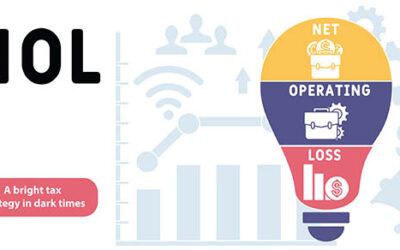A client recently asked us about reporting cash payments to a business of $10,000 or more. Understanding what is and isn’t considered “cash” as well as the process can be confusing, but the consequences for failing to file correctly and on time are serious. Here are the basic guidelines and a couple of examples:
First, the definitions:
“Cash” is:
- Cash- includes coins and currency of the U.S. and a foreign country
- Bank drafts, Cashier’s checks, Money Orders or Traveler’s checks with a face value under $10,000
What is NOT considered “cash”:
- Personal checks drawn on the account of the writer
- Bank drafts, Cashier’s checks, Money Orders or Traveler’s checks with a face value of more than $10,000
When Do I report the Cash Payment?
When a business receives a cash payment of $10,000 or more, a business must file IRS Form 8300 within 15 business days.
Likewise, if a business receives 2 or more transactions under $10,000 within 24 hours that total more than $10,000, the total amount is considered to be the transaction. Transactions are also related even if they are more than 24 hours apart when a business knows, or has reason to know that each series is connected to transactions.
What happens if I do not file?
The business is subject to civil and criminal penalties if the form is not filed properly and within the timeframe, as follows (after 2017):
- Fines up to $260 per return if the business negligently fails to file the form within the 15 business days.
- Criminal sanctions up to $25,000 and up to 5 years in prison if the business willfully fails to file the form, or the form is incomplete or incorrect.
How to Report a Suspicious Transaction:
If you suspect that a cash payment somehow involves illegal activity, or a client requests or prevents the business from filing Form 8300, the filer can report this by checking box 1B on the top line of the tax return.
Examples:
A. A travel agent receives $8000 in currency from a client on Monday to pay for an upcoming trip. That same client adds a traveler and delivers another $4000 in currency to the travel agent on Tuesday. This is an example of a related transaction and the agent must file Form 8300. The IRS considers this 24-hour period to be 1 transaction, for a total of $12,000 in cash (currency). The travel agent must file Form 8300 within 15 business days once the cash is received.
B. John buys a used car from Acme Motors for $12,000 and pays with a Cashier’s Check. Because the face value of the check is more than $10,000, Acme Motors does not need to file Form 8300.
C. Tim buys a motor cycle from John on Craig’s List for $11,000 cash. Jim does not have to report the $11,000 because he is not in the business of selling motorcycles.
As always, this information is intended to provide clarification but should not be considered tax advice. Each situation is different; always consult your CPA or tax preparer to make sure that you’re filing in a proper and timely manner.
Contact Hare CPAs for additional information, or to discuss your unique situation!


